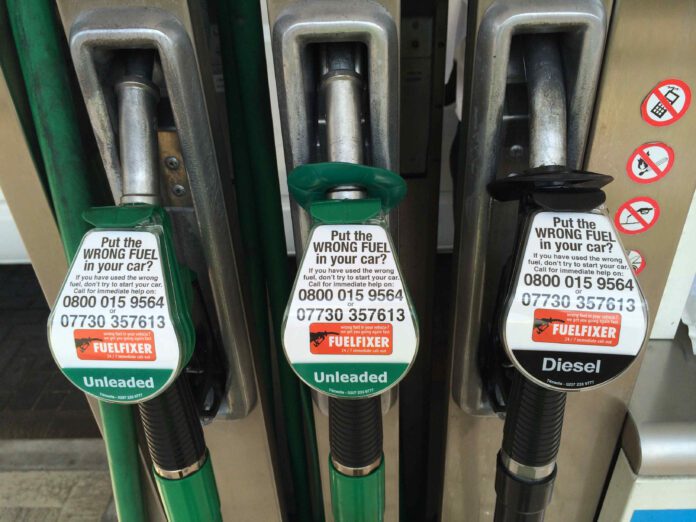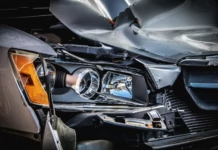With millions of people expected to be travelling on UK roads over the August Bank Holiday weekend, car leasing comparison website LeaseLoco, is warning motorists about the dangers of misfuelling.
Every year, around 150,000 motorists accidentally put the wrong fuel in their vehicles1 – that’s just over 400 misfuels every day, and almost 100,000 misfuel mishaps already in 2021.
And it’s easy enough to do, particularly when you are distracted by a car full of excitable, noisy kids, and you’re desperate to get back on the road and reach your destination.
But what seems like an innocuous mistake could end up costing you thousands of pounds in repairs, particularly if you accidentally put petrol in your diesel car – which could lead to you having to replace the engine.
John Wilmot, CEO of LeaseLoco, comments: “This Bank Holiday weekend is set to be a scorcher. But for some families it could end up being a damp squib, because of a lapse in concentration and an easily avoidable mishap.
“With over 400 motorists misfuelling every day, potentially more than 1,000 Brits will fill their cars up with the wrong fuel this weekend and face the prospect of a huge repair bill.
“Unfortunately, it’s also the most common mistake – putting petrol in a diesel car – which can result in the most damage.
“Petrol damages diesel engines more than vice versa. And it’s easier to accidentally put petrol into a diesel tank because petrol nozzles can fit into most diesel filter necks.
“My advice to motorists is concentrate and take your time while refuelling, and make sure you check the fuel grade indicator on the pump and the label on the pump trigger. Never rely on the colour of the hose or nozzle.”
John Wilmot explains what happens when you put petrol in a diesel car and vice versa, and offers his advice on what to do if you put the wrong fuel in your car.
What happens when you put petrol in a diesel car?
Petrol damages diesel engines because it increases friction between parts in the engine. Diesel on the other hand, acts as a lubricant helping the fuel pump do its job.
The more petrol that’s pumped through the engine the more damage it will do. And the damage to fuel pumps, injectors, the fuel tank could be severe. The worst-case scenario, you may even need a new engine.
What happens when you put diesel in a petrol car?
It is far less common to put diesel in a petrol car because the diesel pump nozzle is bigger than most petrol filler necks.
Fortunately, diesel in a petrol engine is not fatal. The diesel will clog up the spark plugs and fuel system and will probably result in the car not starting. However, there shouldn’t be any lasting damage once the fuel has been drained out.
John Wilmot of LeaseLoco offers advice to car drivers in the event of misfuelling
Don’t turn the engine on
Leave your engine switched off and don’t put the key in the ignition. The most serious damage from misfuelling occurs after starting the engine because this allows fuel to circulate around it.
Drain the fuel tank
The fuel tank needs to be drained to remove the contaminated fuel before you drive the car. But before you can do this….
Put the vehicle in neutral
Put the car in neutral, let the staff at the petrol station know what’s happened, and push the vehicle to a safe place on the forecourt.
Already driven off?
If you’ve already left the petrol station, find a safe place to pull over as soon as possible, put the car in neutral and turn off the ignition.
Fuel drain services
Most breakdown cover policies won’t cover the costs of draining and flushing your vehicle after misfueling, but the big breakdown providers do offer the service separately whether you’re a member or not. There are also plenty of specialist companies offering misfuelling services.
Insurance
Check your insurance policy to see if misfuelling is covered. You may be able to claim back the cost of repairing your car under an accidental damage clause in your policy. This generally only applies to comprehensive policies though.
Avoid misfueling
To avoid misfuelling, check the fuel grade indicator on the pump and the label on the pump trigger. Never rely on the colour of the hose or nozzle.
You could also label your fuel cap with a prominent sign indicating the fuel type. It’s also possible to buy a diesel filler cap that prevents petrol nozzles from fitting into diesel tank necks.

| [donate]
| Help keep news FREE for our readersSupporting your local community newspaper/online news outlet is crucial now more than ever. If you believe in independent journalism,then consider making a valuable contribution by making a one-time or monthly donation. We operate in rural areas where providing unbiased news can be challenging. |


















